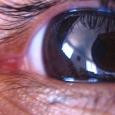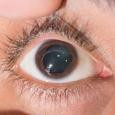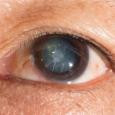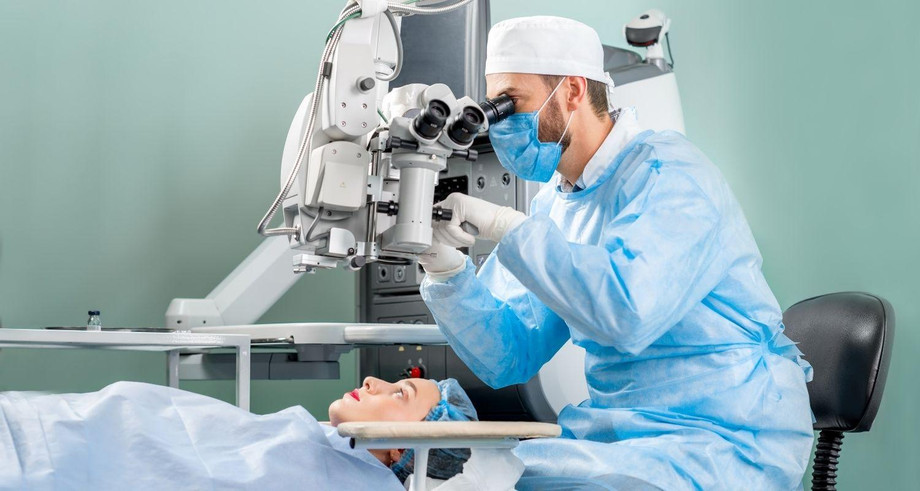Mr Gurjeet Jutley FRCOphth, BM, BSc (Hons)
Consultant Ophthalmologist, Glaucoma & Cataract Surgeon Since 2017
FRCOphth (The Royal College of Ophthalmologist) 2016
Southampton University Medical School 2000 -2006
Ophthalmology training at the North Thames Deanery 2010-2017
Gurjeet Jutley is a Consultant Ophthalmic Surgeon based at Oxford University Hospital. Gurjeet has sub-speciality interest in cataract surgery and glaucoma. He provides treatments including conventional glaucoma surgery (including trabeculectomy and tube surgeries) minimally invasive glaucoma surgery (MIGS) and endoscopic cyclophotocoagulation laser treatments.
Treatments

Glaucoma is the most common cause of irreversible sight loss in the world. By 2020, it is estimated 11.2 million people will be blind secondary to glaucoma. Sight loss is due to damage to the optic nerve: this is the nerve that connects the eye to the brain. This nerve damage is primarily (although not exclusively) associated with high pressure in the eye.
How can it be prevented?
Fortunately, if it can be diagnosed, detected and reviewed closely with expert management, the sight loss can often be prevented. The aim of treatment is to control the pressure in the eye, which can be achieved by medicine, laser, conventional surgery or minimally invasive surgery.
Recovery
It is important to avoid heavy lifting and swimming for one month after surgery. You will be able to go back to work the following day after surgery, as long as drops are instilled. The eye will be completely healed after six weeks.
What is Cataract?
Light rays from the environment are bent by both the cornea and lens onto the back of the eye, enabling us to see. With time, the clear lens becomes cloudy, which is termed cataract. The cardinal symptoms are: blurry vision, cloudy vision and glare looking at lights.
How can it be prevented?
Unfortunately, cataract cannot be prevented. They are not pathological: we will all get cataracts. What we cannot predict, is when they will develop.
What does surgery involve
Surgery is performed with drops alone, aiding quicker recovery. Small incisions are performed with self sealing wound constructions, requiring no stitches. If required, the surgery can be done with sedation or general anaesthetic. The lens is removed with an ultrasound probe and an acrylic implant chosen to fit your visual requirement.
What is Laser Treatment
Laser is a ubiquitous term with energy being focused and directed to different parts of the eye, for different indications. Laser is used medically in a variety of different ways for management of certain glaucoma or ‘after cataract’.
- A small laser hole can be created in the iris to prevent acute glaucoma. This is called a peripheral iridotomy and is useful in patients with narrow drainage angles (please read more)
- If the drainage angles are open, selective laser trabeculoplasty (SLT) can be used to reduce the pressure and prevent the need of glaucoma drops.
- 20% of patients after cataract surgery, require a top up laser ‘polish’ of the capsule. This posterior capsulotomy increases the clarity and sharpness of vision.
What does it involve?
The laser is connected to a slit-lamp, similar to the one used for eye assessments. Hence laser is performed in a sitting position at the slit lamp. Drops alone are used to numb the eyes, ensuring complete comfort during the procedure. Laser is not invasive, as no cuts are made to the eye. Hence there is no risk of infection and no antibiotics are required.
Recovery
Recovery after laser is very rapid. After most types of laser, a short course of post operative steroid drops is given to reduce any inflammation. You will be able to go back to work after the procedure.
General Ophthalmology
Conditions
A myriad of problems can afflict the eyes including:
- Red eyes
- Gritty eyes
- Sticky eyes
- Floaters
- Flashing lights
- Reduced vision
________________________________________________________________________________________
Contact Information:
Gurjeet Jutley
The Manor Hospital Beech Rd
Oxford ,OX3 7RP
07568 512719
https://gurjeetjutley.com
gurj14@hotmail.co.uk
rahimapaservices@gmail.com
Opening Hours:
8am- 9pm (7 days a week )











